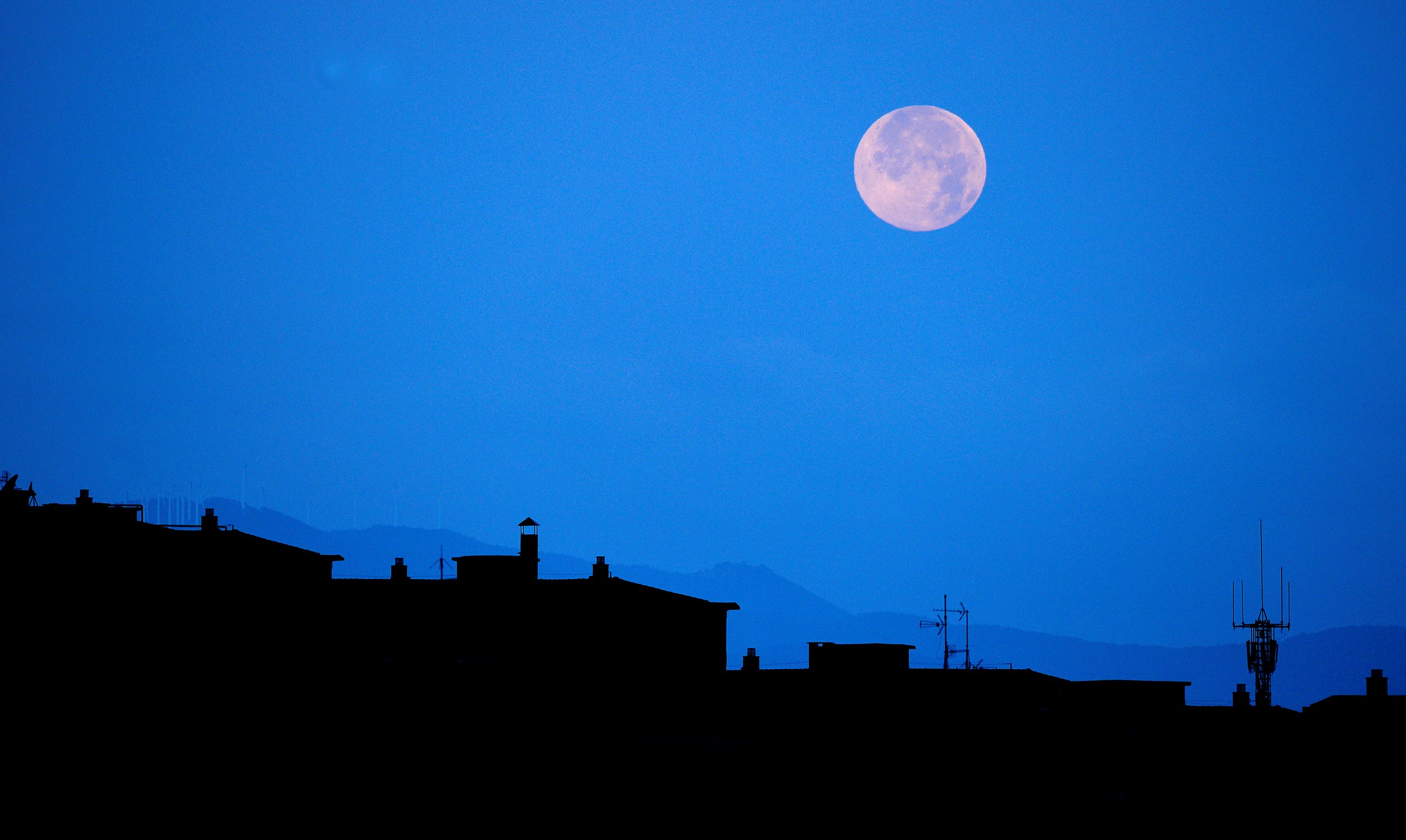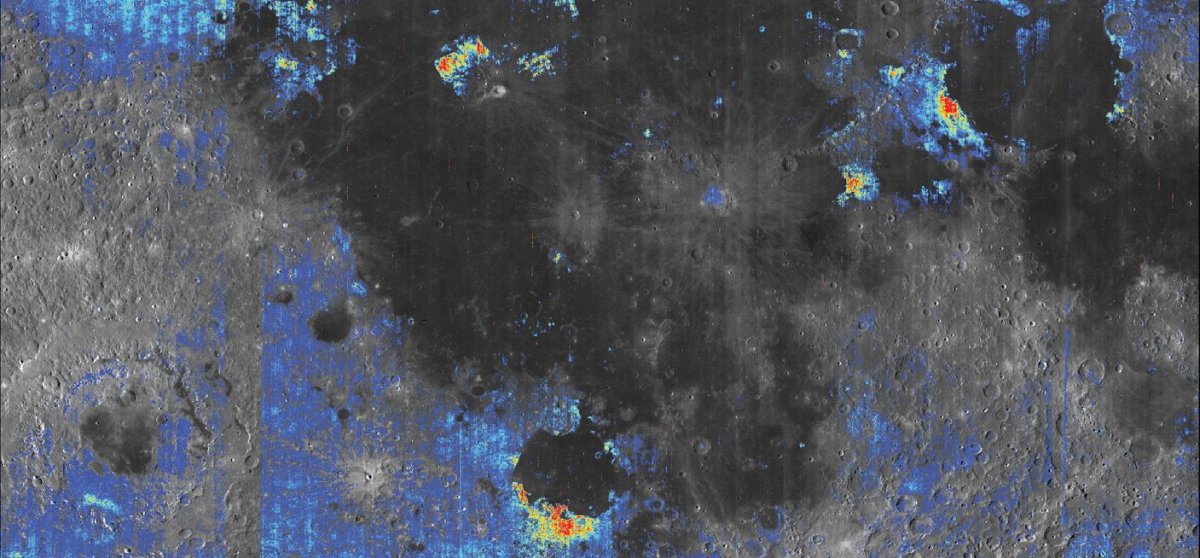
Scientists have discovered evidence that suggests a significant amount of water is trapped beneath the surface of the moon, raising questions about its origins and potentially bolstering future attempts to explore the Earth's satellite.
A study of data from satellites has found that deposits of volcanic material distributed across the moon's surface contain very high levels of water, compared with surrounding areas, according to new research published in Nature Geoscience.
A news release promoting the research said the study "bolsters the idea that the lunar mantle is surprisingly water-rich."
The Apollo 15 and 17 missions to the moon, launched in the early 1970s, brought back volcanic glass beads to earth. In 2011, a study of these materials found that they contain amounts of water similar to those in some basalt on Earth, suggesting that some parts of the moon's mantle may contain as much water as parts of our world.
The new study, authored by Ralph Milliken, an associate professor in Brown University's Department of Earth, Environmental and Planetary Sciences, and Shuai Li, a postdoctoral researcher at the University of Hawaii and a recent Brown Ph.D. graduate, sought to examine whether these materials brought back by the Apollo missions were anomalies or were representative of conditions on the moon.
Li and Milliken followed a complex process in which they used an orbital spectrometer to measure light bouncing off the moon's surface and then corrected these measurements to ensure they were not disrupted by changes in the lunar temperature.
Having done this, the researchers found evidence to suggest water was present in "nearly all" of the large deposits of volcanic matter previously mapped on the moon.
"The distribution of these water-rich deposits is the key thing," Milliken said. "They're spread across the surface, which tells us that the water found in the Apollo samples isn't a one-off. Lunar pyroclastics seem to be universally water-rich, which suggests the same may be true of the mantle."
Evidence for the existence of water inside the moon raises questions about how it was formed. Most scientists believe the moon came into being after an object the size of Mars hit the Earth early in the history of the solar system, dislodging debris. But it is unlikely that the hydrogen needed to form water could have survived that experience.
"The growing evidence for water inside the moon suggests that water did somehow survive, or that it was brought in shortly after the impact by asteroids or comets before the moon had completely solidified," Li said. "The exact origin of water in the lunar interior is still a big question."

The potential to extract any water from the moon could help with future lunar exploration.
"Other studies have suggested the presence of water ice in shadowed regions at the lunar poles, but the pyroclastic deposits are at locations that may be easier to access," Li said. "Anything that helps save future lunar explorers from having to bring lots of water from home is a big step forward, and our results suggest a new alternative."
Uncommon Knowledge
Newsweek is committed to challenging conventional wisdom and finding connections in the search for common ground.
Newsweek is committed to challenging conventional wisdom and finding connections in the search for common ground.
About the writer
Josh is a staff writer covering Europe, including politics, policy, immigration and more.
To read how Newsweek uses AI as a newsroom tool, Click here.








